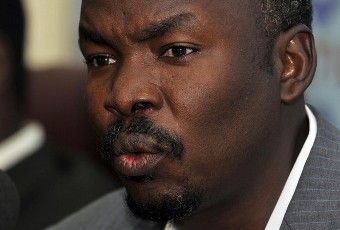Controversial S. Kordofan governor may lead negotiations with SPLM-N: reports
March 2, 2013 (KHARTOUM) – The governor of South Kordofan, Ahmed Haroun, may head Sudan’s delegation to the upcoming negotiations with rebels from Sudan People Liberation Movement North (SPLM-N), according to local media.
 The African Union (AU) mediation team led by former South African president Thabo Mbeki invited Khartoum and SPLM-N to sit down in the Ethiopian capital of Addis Ababa for talks in mid-March.
The African Union (AU) mediation team led by former South African president Thabo Mbeki invited Khartoum and SPLM-N to sit down in the Ethiopian capital of Addis Ababa for talks in mid-March.
The Sudanese government has been strongly resistant to any negotiations with the SPLM-N for fear of reinventing a deal similar to the 2005 Comprehensive Peace Agreement (CPA) which incorporated a power and wealth-sharing protocol.
But the United Nations Security Council (UNSC) resolution issued in May 2012 ordered Sudan and the SPLM-N to cooperate in order to end the conflict in the two regions.
Under the resolution, the two parties are supposed to negotiate on the basis of the 28 June 2011 agreement they signed in Addis Ababa before it was scrapped by Sudanese president Omer Hassan Al-Bashir.
The SPLM-N have been battling the Sudanese government since 2011 in the border states of South Kordofan and Blue Nile ,which has led to the displacement of hundreds of thousands of civilians.
The United Nations in 2011 said that war crimes may have been committed in South Kordofan following the outbreak of the conflict with SPLM-N.
In 2007, Haroun became the first Sudanese official to be charged by International Criminal Court (ICC) in connection with war crimes allegedly committed in Sudan’s western region of Darfur. At the time he held the position of state minister for humanitarian affairs though the crimes he was indicted on were committed while he was the state minister for interior.
The charges against him include 51 counts of murder, mass rape and torture. Sudan has refused to hand him or any other citizen to the Hague-based court.
Last year Haroun was caught in tape that was aired by Qatar-based Al-Jazeera TV showing him instructing troops in South Kordofan not take any prisoners in the course of their fighting with rebels.
His remarks drew criticism by the UN and the European Union.
(ST)
